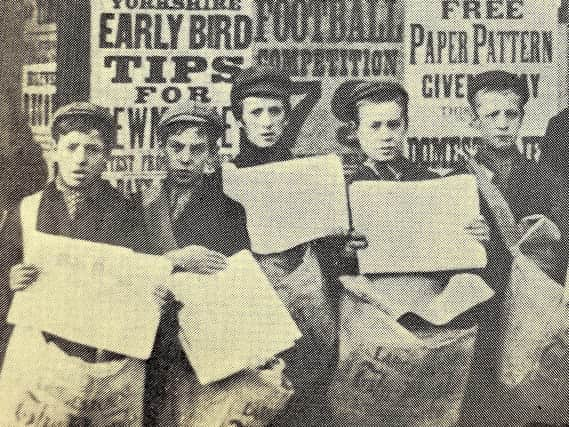Two Preston boys stole newspapers and journals described as ‘deplorable’


In the Preston police court on the second Monday of May 1878 two lads, namely Thomas Billington and James Wilson, appeared before the former Mayor Moses Savery Maynard and a bench of magistrates accused of stealing upwards of thirty newspapers.
After hearing evidence from Detective Sergeant Charnley it was agreed they would be remanded in custody until the following Wednesday as further evidence was gathered.
Advertisement
Hide AdAdvertisement
Hide AdAt the second hearing on the Wednesday the magistrates heard that the lads had stolen the newspapers from the bookstall on the North Union railway station in Preston and sold them on to a woman named as Catherine Cartmell, a provisions dealer.
At this stage Mr. Watson the prosecuting solicitor suggested to the magistrates that the charges against the lads be dismissed in view of their co-operation in enabling Detective Charnley to gather evidence against the woman.
The magistrates agreed to this course of action and following the later appearance of Catherine Cartmell before the magistrates she was sent to the Preston Sessions held in late May 1878 accused of receiving 21 bundles of newspapers and periodicals knowing them to have been stolen and the property of L & N.W Railway Company.
The court heard how the lads had been in the habit of stealing the newspapers from the railway station and taking them to her shop.
Advertisement
Hide AdAdvertisement
Hide AdAccording to Detective Sgt. Charnley the accused had given them a couple of pennies per pound weight as waste paper.
The detective had searched the woman’s shop and discovered 21 bundles of papers.
Mr. Addison who was representing the accused called several witness to prove the respectability of her character, and that she was of low intellect being unable to read or write.
He claimed that it was her understanding that the newspapers had not been stolen, but were simply out of date and only fit for waste paper.
Advertisement
Hide AdAdvertisement
Hide AdThe Chairman Mr. W.H. Higgins in his summing up took the opportunity to criticise some of the periodicals found in the bundles.
Remarking that he thought ‘Every Week’ was disgusting and beastly, and that ‘Champion Prize Fighters’ encouraged brutes to knock each other about in those bare knuckle boxing days.
And he thought the content of ‘Champion Journal’, a boys’ magazine quite deplorable and unsuitable for young brains.
The jury after lengthy deliberations obviously thought the accused did not realize she was handling stolen property and they returned to court with a not guilty verdict.
Advertisement
Hide AdAdvertisement
Hide AdNewspapers had begun to flourish locally after 1855 when the stamp duty on newspapers was abolished and such weekly publications as the Preston Mercury, Preston Telegraph, The Wasp and The Echo appeared in the newspaper racks.
Although it was Preston Chronicle, Preston Herald and Preston Pilot that would have the greatest popularity prior to the launch of the Lancashire Evening Post in 1886.